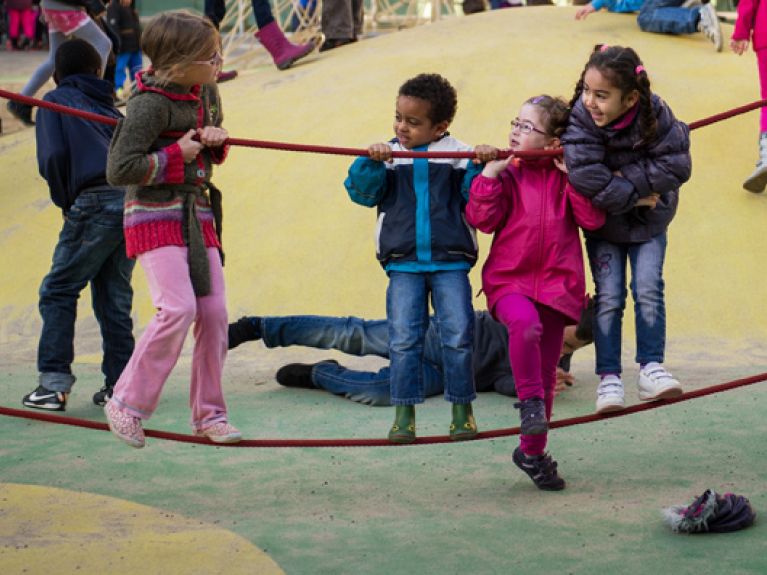Diversity in the classroom
German and Israeli student teachers explore “pluricultural spaces in education”

Ever since it was founded, Israel has been a country of immigration, and its society is becoming ever more diverse: one fifth of the population are of Arab origin, more than one million people emigrated from the former Soviet Union, and the number of workers from Asia and refugees from Africa is on the rise. Germany is likewise characterised by immigration, with more than 16 million people today having migrant backgrounds.
This trend poses a challenge to schools and teachers in both countries, for it means that they need to engage with pupils from an extraordinary spectrum of different origins. The “Pluricultural Spaces in Education – Comparing Germany and Israel” project has been put in place to develop new concepts destined to provide solutions. By early 2016, 20 student teachers at Karlsruhe University of Education and the Oranim Academic College of Education in Kiryat Tivon will have formulated the foundations for a school of the future that will use exploit cultural, linguistic and religious diversity to the benefit of both teachers and students alike. The project is sponsored by the German-Israeli Future Forum.
“We believe that Israel is a step or two ahead of Germany when it comes to immigration, because the latter didn’t see itself as a country of immigration for a long time,” says Professor Sabine Liebig of Karlsruhe University of Education. “Diversity in the classroom is a potential that has not been fully maximised in Germany.” Since February 2014 the students have been setting up the theoretical foundations of the project in six different working panels. Topics include the history of and latest social trends in the two countries, research on the varying educational success of pupils from different backgrounds, and theories of plurality. Activities for the coming semesters include field research in schools in Germany and Israel, interviews with teachers, students and parents about how they perceive the growing diversity and studies on which ideas have proved successful in day-to-day school life.
“I have the amazing opportunity to work on a highly topical project that will help transform life in our schools,” says budding teacher Martina Hunkler. Experiences from her part-time job likewise prompted her to take part in the project: “I give private lessons to two Turkish boys. So I am naturally interested in how their background impacts on their success at school.” For Amir Petrashevsky, a history student from Israel, the project is “a unique opportunity to compare the cultural diversity in two different societies, of which one struggles with political problems and a lack of security, and the other does not. I hope that the Germans will be able to help us Israeli students to see things from a different perspective.”
In November 2014 all those participating in the project will meet in Karlsruhe for the first time. From then on they will compare notes regularly during workshops in Israel and Germany and keep in touch via an e-learning platform. The plan is for the results to be posted on the Internet by 2016 to make them available for public use. ▪

